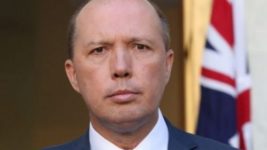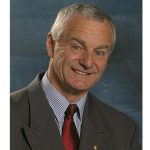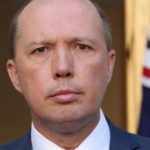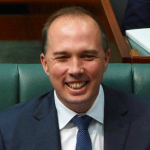Dutton Argues Against Calls for Drug Decriminalisation

NSW premier Gladys Berejiklian has granted the ice inquiry commissioner Professor Dan Howard SC the extension he requested for the tabling of his report, so as to allow more time to consider the decriminalisation of the personal possession and use of ice and other drugs.
In his request dated 21 May this year, the professor put forth that he needed extra time to focus on a key issue that’s emerged out of the inquiry submissions, which was the recommendation for “the removal of criminal sanctions” for the possession and use of illicit substances.
Ms Berejiklian extended the commission timeframe, so the final report must now be delivered by 28 January next year. The “just say no to drugs” premier commissioned the inquiry late last November to investigate the adequacy of existing measures in dealing with crystal meth and other stimulants.
And the support for decriminalisation that’s been so overwhelming as to warrant the extension has come from some unlikely places. Both the NSW and ACT synods of the Uniting Church are for it, as well as the NSW Bar Association. And the Law Society of NSW supports exploring the option further.
However, Peter Dutton’s Home Affairs ministry has stepped forward with an anti-decriminalisation submission. The federal department warns that consideration of the public health approach should be off the table due to the problems it would supposedly cause under Australia’s federated system.
Dutton’s dubious dilemma
“The decriminalisation or legalisation of amphetamine-type stimulants for personal use, without a wider package of reforms to the Commonwealth legal framework and health system” would create issues, says the Home Affairs’ submission.
The report then lists the concerns as legal ambiguity, uncertainty for law enforcement and that old chestnut, increased demand. The first grievance – conflicting laws – is what’s been raised in the ACT, as the attempt to legalise personal amounts of cannabis becomes more likely.
The argument is that if, say, the personal use and possession of MDMA was decriminalised, then a NSW police officer who found a permitted amount of the drug on a person would be inclined to bypass local decriminalisation laws and enforce federal prohibition laws.
However, there’s already an example in NSW law that reveals this dilemma won’t occur. Section 36N of the Drug Misuse and Trafficking Act 1985 (NSW) provides that it is not unlawful for a person to be in possession of and use an “exempt quantity” of a prohibited drug at a licensed injecting centre.
This section also provides officers with the discretion not to enforce drug possession laws in the vicinity of an injecting centre. And while the Kings Cross safe injecting facility has been operating since 2001, police have never found it necessary to enforce federal laws in respect to its clientele.
Grasping at straws
The Australian Border Force falls under the Home Affairs’ remit. The department’s submission raises an issue around officers feeling uncertain as to whether they should be seizing any prohibited substances located at the border while their personal use is decriminalised in NSW.
But, this kind of confusion could probably be overcome if Mr Dutton sits down with those in charge of border security and explains to them that trafficking in illicit drugs is still illegal and if officers do come across any drugs then they should continue to seize them and apprehend the smugglers.
Another departmental concern is that decriminalisation could result in the growth of “transnational, serious and organised crime groups”, as they increase operations to keep up with a rising demand. But, the Portuguese decriminalisation experience has shown consumption is unlikely to rise.
Indeed, it’s becoming increasingly apparent that it’s prohibition that has led to the huge growth in the organised crime networks involved in drug production and trafficking. And the harder police enforce drug laws, the more lucrative the black market becomes.
The barristers are on board
In its submission, the Bar Association states that its position is that consideration “be given to decriminalisation of personal acquisition, possession and use of illicit drugs, with increased focus on treatment and harm reduction measures”.
The association is very clear that it does not support the lifting of criminal sanctions when it comes to the “production, trafficking and supply of illicit drugs”. However, minor supply and production offences by a people who uses drugs should be dealt with by diversionary measures.
The introduction of civil courts to deal with personal possession and use is also recommended by the Bar Association. And this would be “closely modelled” on the decriminalisation system that’s been operating in Portugal since 2001.
Individuals found with a personal amount of an illicit drug in Portugal are sent before a dissuasion panel, comprised of a doctor, a lawyer and a social worker. The panel ascertains whether any treatment is needed. And most individuals are sent away with no reprimand whatsoever.
“The Portuguese model appears to represent best practice in the implementation of civil orders in addressing illicit drug use and in the alleviation of drug related harm,” the authors of the Bar Association submission make clear.
The failing war on drugs
As Professor Dan Howard SC pointed out in his request to the NSW premier for more time to carry out his ice inquiry, drug decriminalisation is not only being agitated for in NSW, but it’s also being called for in “many jurisdictions internationally”.
And these moves towards drug decriminalisation are an admission that the war on drugs has failed, and further that the harms associated with the illegality of these substances are often much worse than the harms the substances cause themselves.
Another sign that drug prohibition isn’t working, as Australian Drug Law Reform Foundation president Dr Alex Wodak points out, is the “number of retired, and even some serving, police commissioners” now advising that society can’t arrest its way out of the current situation.
“This is surely a message in code for our political leaders to begin to redefine drugs as primarily a health problem and start funding drug treatment properly,” the veteran drug law reformist told Sydney Criminal Lawyers a fortnight ago.
So, it’s probably about time that the minister in charge of the federal police, Peter Dutton, takes heed of what those who’ve long been at the frontline of practical drug law enforcement are trying to tell him.







